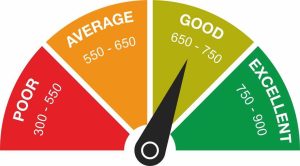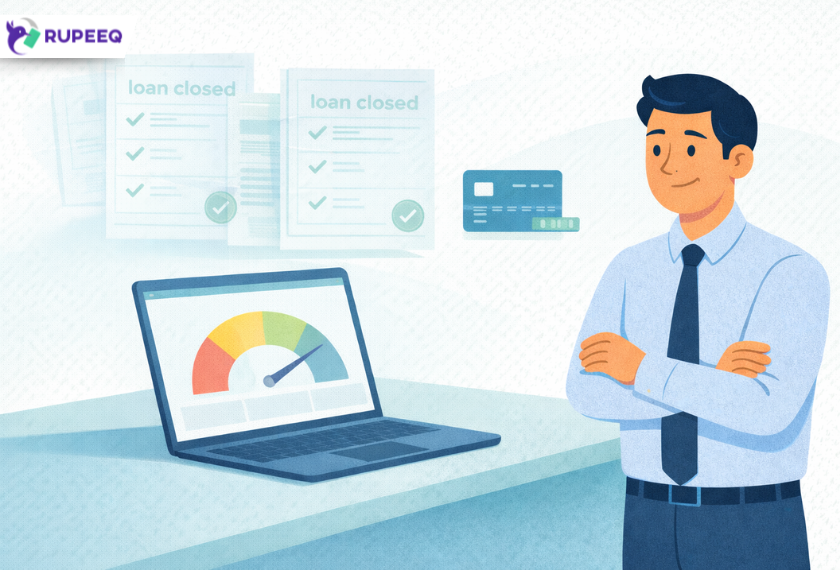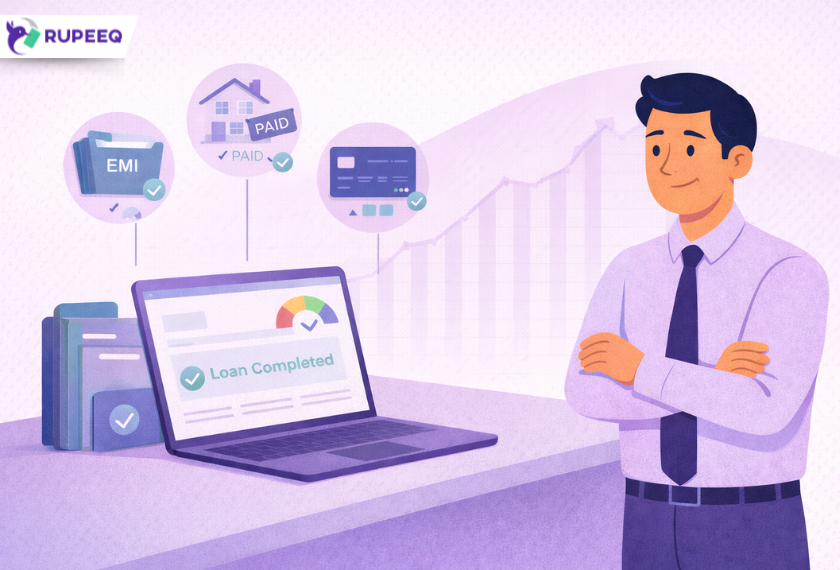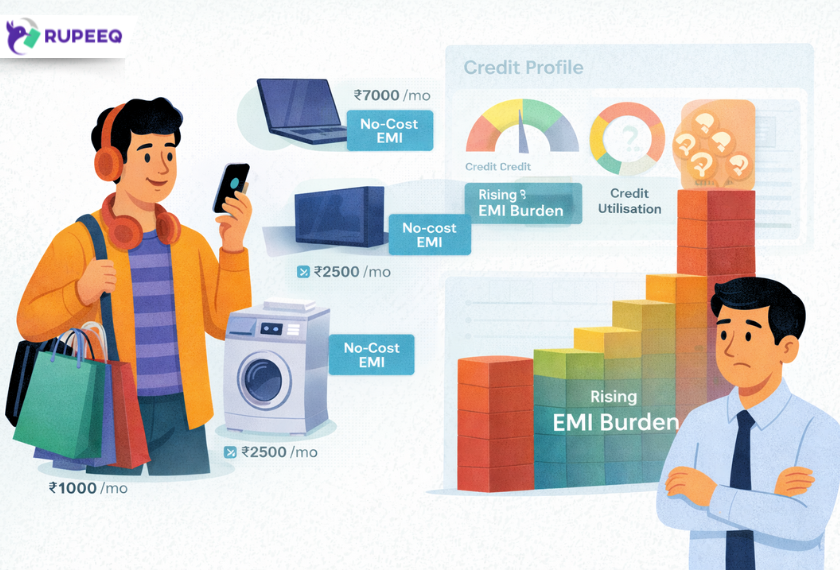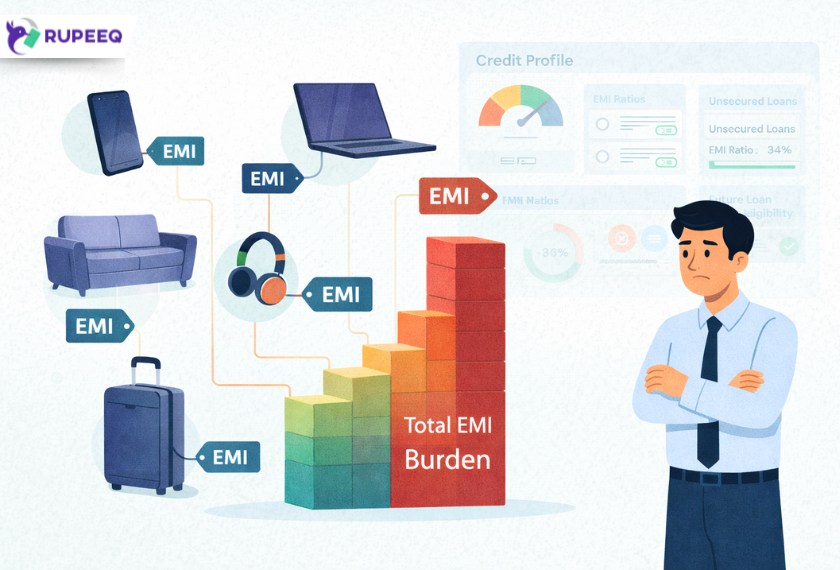Having a bad credit score can feel like a major obstacle when you need financial assistance, but it doesn’t necessarily mean you’re out of options. While a lower credit score may make it more challenging to qualify for a personal loan, there are still ways to improve your chances. In this blog, we’ll explore what a bad credit score means, how it impacts your ability to get a personal loan, and strategies to increase your approval odds.
What is Considered a Bad Credit Score?
Credit scores in India typically range from 300 to 900, with higher scores indicating better creditworthiness. Here’s how credit scores are generally categorized:
- 750 and above: Excellent
- 700 – 749: Good
- 650 – 699: Fair
- 600 – 649: Poor
- Below 600: Bad
If your score falls below 650, lenders may see you as a high-risk borrower, making it harder to get approved for a personal loan. However, not all hope is lost. Let’s look at how a low credit score impacts your borrowing options and what you can do about it.
How a Bad Credit Score Affects Your Loan Application
A bad credit score influences your loan application in several ways:
- Higher Interest Rates: Lenders may approve your loan but charge a higher interest rate to compensate for the risk.
- Lower Loan Amounts: With a bad credit score, you might not be eligible for a large loan amount, even if you have a strong income.
- Stricter Eligibility Requirements: Lenders may have stricter criteria, such as higher income requirements or additional documentation.
- Limited Lender Options: Not all financial institutions are willing to work with borrowers who have a poor credit history, reducing your pool of lenders.
RupeeQ Tip: Check your credit score using RupeeQ ACE before applying for a loan. Understanding your credit profile can help you identify lenders who may be more willing to work with you.
Can You Get Approved for a Personal Loan with Bad Credit?
Yes, it is possible to get a personal loan even if you have a bad credit score. However, it will require some effort and may come with certain trade-offs. Here are some options to consider:
a) Consider NBFCs and Digital Lenders
Non-Banking Financial Companies (NBFCs) and digital lenders are often more flexible than traditional banks when it comes to approving loans for people with bad credit. They may consider factors beyond just your credit score, such as your income and employment stability.
- Pros: Easier approval process, faster disbursement
- Cons: Higher interest rates and potential additional fees
b) Opt for a Secured Personal Loan
- If you have assets such as property, a fixed deposit, or gold, you can consider applying for a secured personal loan. Since the loan is backed by collateral, lenders may be more willing to approve it despite a poor credit score.
- Pros: Lower interest rates compared to unsecured loans, higher approval chances
- Cons: Risk of losing your asset if you default
c) Get a Co-Applicant or Guarantor
- Having a co-applicant or guarantor with a good credit score can increase your chances of getting a loan. The co-applicant shares the responsibility for repaying the loan, reducing the risk for the lender.
- Pros: Improved approval chances, possibly better loan terms
- Cons: Your guarantor is equally liable for repayment, which can affect your relationship if issues arise
RupeeQ Tip: If you’re considering a secured loan, ensure you can make regular payments. Defaulting could result in losing your valuable assets.
How to Improve Your Chances of Getting Approved by Lender
Even with a bad credit score, there are steps you can take to improve your loan approval odds:
a) Show Proof of a Stable Income
- Lenders are more likely to approve your loan if you can demonstrate a stable and sufficient income. Submit documents like salary slips, tax returns, or bank statements to prove your repayment capability.
- Additional Income Sources: Highlight any other income streams, such as rental income or a side business, to strengthen your case.
b) Lower Your Debt-to-Income Ratio
- Your debt-to-income (DTI) ratio is the percentage of your income that goes toward paying off existing debts. A lower DTI ratio indicates better financial health and increases your chances of loan approval.
- How to Lower DTI: Pay off smaller debts or increase your income if possible before applying for a new loan.
c) Provide Collateral
- As mentioned earlier, offering collateral for a secured loan can improve your chances of approval. Collateral reduces the risk for the lender and can help you qualify even with a poor credit score.
RupeeQ Tip: Use RupeeQ’s loan comparison tool to identify which lenders are more likely to approve your loan based on your financial profile.
How to Improve Your Credit Score Before Applying
If your loan application is not urgent, it’s wise to work on improving your credit score before applying. Here are some ways to boost your score:
- Pay Bills on Time: Timely payments are crucial for maintaining and improving your credit score.
- Reduce Credit Card Balances: Aim to keep your credit utilization ratio below 30%.
- Limit New Credit Inquiries: Avoid applying for multiple loans or credit cards within a short period.
- Check for Errors on Your Credit Report: Review your credit report for any inaccuracies and dispute them if necessary.
RupeeQ Tip: Start by tackling debts with the highest interest rates. This not only helps your credit score but also saves you money in the long run.
Alternatives to Personal Loans with Bad Credit
If you’re struggling to get approved for a personal loan, consider these alternatives:
- Credit Union Loans: Credit unions may offer loans at lower interest rates and are more willing to work with members who have bad credit.
- Borrow from Friends or Family: While this option can strain relationships, it may be a viable short-term solution if you have a reliable repayment plan.
- Debt Consolidation Loans: If you have multiple high-interest debts, consolidating them into one loan may lower your interest rate and simplify repayment.
RupeeQ Tip: If borrowing from friends or family, put the agreement in writing to avoid misunderstandings.
Final Thoughts: Is Applying for a Personal Loan with Bad Credit Worth It?
Applying for a personal loan with a bad credit score is not impossible, but it does come with challenges. Weigh the pros and cons, and consider whether the high interest rates and fees are worth the loan. If possible, take some time to improve your credit score before applying. However, if you need funds urgently, explore all available options and choose the one that best suits your financial situation.
Remember, managing your finances responsibly and improving your credit score can open up better loan opportunities in the future. Take the first step today and work toward a stronger financial profile.


